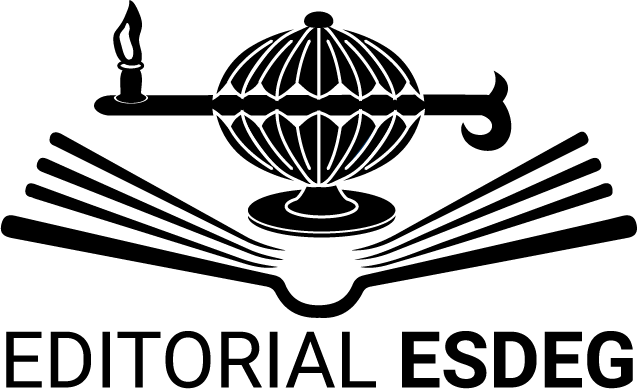Perú y su seguridad política: una visión desde el realismo subalterno
DOI:
https://doi.org/10.25062/1900-8325.91Palabras clave:
Seguridad Política, Tercer Mundo, Consolidación Democrática, Realismo SubalternoResumen
El proceso inacabado de construcción de Estado-Nación en el Perú constituye la principal amenaza a su seguridad. Esto implica que los desafíos en esta materia no están asociados necesariamente a cuestiones militares, ni a la lucha anti-subversiva, sino a aspectos constitutivos de su institucionalidad democrática. Por ello, para analizar la seguridad en este país andino se requiere de dos tareas: hacerlo desde una perspectiva teórica que involucre a la seguridad política en Estados del llamado tercer mundo, y analizarlo desde una óptica interna y política de su seguridad para examinar de qué forma la ausencia de consolidación democrática hace mella en su seguridad. De suerte que éstos serán los ejes articuladores del artículo que pretende explorar la seguridad política de una de las democracias más jóvenes de América Latina.
Biografía del autor/a
Mauricio Jaramillo-Jassir, Escuela Superior de Guerra
Internacionalista de la Universidad del Rosario. Magíster en Seguridad Internacional del Instituto de Estudios Políticos de Toulouse y en Geopolítica del Instituto Francés de Geopolítica de París. Aspirante a Doctorado en Ciencia Política de la Universidad de Toulouse. Coordinador de la Línea sobre Seguridad Hemisférica en el Centro de Estudios Estratégicos sobre Seguridad y Defensa Nacionales – CEESEDEN de la Escuela Superior de
Guerra. Asesor en Guerra Asimétrica de la Escuela de Inteligencia y Contrainteligencia Ricardo Charry Solano.
Referencias bibliográficas
Ayoob, Mohammed. (1989). "The third world and the system of the states: acute schizophrenia or acute pains". En: International Studies Quarterly. Vol.33. No. 1. P. 69 - 79. https://doi.org/10.2307/2600494
_______________. (1995). "The third world security pre-dicament : statemaking, regional confl ict, and the international system". Lynne Rienner Publishers. P. 1 - 19.
_______________. (1998). "Subaltern realism: International Relations theory meets the Third World" . En: " International Relations Theory and the Third World" St. Martin Press Nueva York. P. 31- 54.
Bamat, Thomas. "Peru's Velasco regime and class domination after 1968". En: Latin American Perspectives. Vol. 10. No.2/3. P. 128 - 150. https://doi.org/10.1177/0094582X8301000208
Buzan, Barry. (1991). "New patterns of global security in the twenty first century". En: International Affairs. Vol. 67. No. 3. P. 431 - 451. https://doi.org/10.2307/2621945
Degregori, Carlos Iván. (1994). "L'effondrement surprenant de Sentier Lumineux" . En : Problèmes d'Amérique Latine. No. 13. P. 3 - 17.
Deméllas, Marie Danielle y Lausent-Herrera, Isabelle. (1995). "Pérou: le pouvoir selon Fujimori". En: Problèmes d'Amérique. No.19. P. 3 - 25.
Ferrari, César. (Entrevista realizada el 16 de marzo de 2010). Ex presidente Banco Central y Ex director Técnico del Instituto de Planeación.
Graham, Carol. (1990). "Peru's APRA party in power: Impossible revolution, relinquished reform". En: Journal of Interamerican Studies and world affairs. Vol. 32. No. 3. P. 7 5 - 1 1 5. https://doi.org/10.2307/166089
Huntington, Samuel. (1996). "The third wave. Democratization in the late twentieth century". Oklahoma; University Press.
Keohane, Robert y Ney, Jospeh. (2000). "Globalization: what's new what's not (And so what?". En: Foreign Policy 118 P. 104 - 119. https://doi.org/10.2307/1149673
Linz, Juan; Alfred, Stepan. (1996). "Problems of democratic transition and consolidation. Southern Europe, South America and Post Communist Europe". Johns Hopkins University Press.
McClintock, Cynthia. (1989). "The prospects for democratic consolidation in a least likely case: Peru". En: Comparative Politics. Vol.21. No. 2. P. 127-142. https://doi.org/10.2307/422041
Starn, Orin. (1995). "Maoism in the Andes: The communist party of Peru Shining Path and the refusal of the history". En: Journal of Latin American studies. Vol. 27. No. 2. P. 399-421. https://doi.org/10.1017/S0022216X00010804
Tanaka, Martín; Dietz, Henry. (2002). "Lima: Centralized autorithy vs. The struggle for autonomy". En: Capital City Politics in Latin America Myers, David y Dietz, Henry (ed) Lynne. Londres. P. 193 - 225
Cómo citar
Descargas
Publicado
Número
Sección

| Estadísticas de artículo | |
|---|---|
| Vistas de resúmenes | |
| Vistas de PDF | |
| Descargas de PDF | |
| Vistas de HTML | |
| Otras vistas | |
















